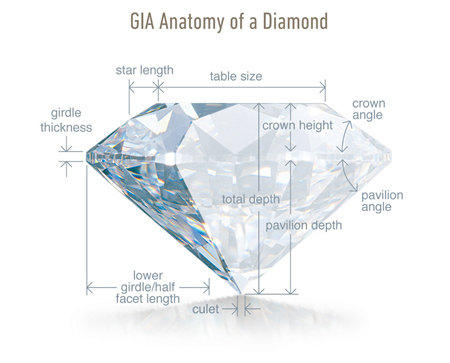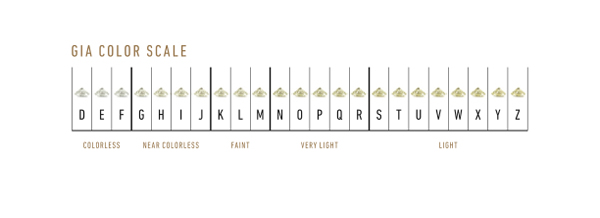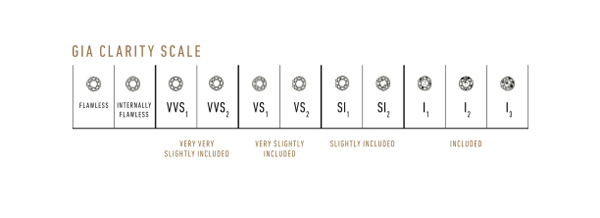* All diamonds listed are available for purchase and in stock for viewing.
Loose Diamond Search
Use the loose-diamond finder below to filter your results based on price and the 4Cs of diamond quality: Color, Cut, Clarity and Cart Weight. If you have any questions, please refer to our diamond education section to learn more, or contact us for availability and pricing.
Diamond Education
There is no other gemstone quite like a diamond. It is found in the most remote places on earth, and the fact that it forms at all is something of a miracle. It takes about one ton of rock to recover less than half a carat of rough, making diamond one of the rarest and most desired gemstones in the world. A diamond is a testament of endurance and strength – and not surprisingly, the ultimate symbol of love.
Beauty and its Beholder
The 4Cs provide a way to objectively compare and evaluate diamonds, but numbers alone can’t describe a diamond’s mysterious and captivating beauty.

Color
The GIA Color Scale extends from
D (colorless) to Z (light yellow or brown).
Although many people think of gem
quality diamonds as colorless, truly
colorless diamonds are actually very
rare. Most diamonds used in jewelry
are nearly colorless with tints of yellow
or brown. Color grades are determined by
comparing each diamond to a master
set. Each letter grade represents a
range of color and is a measure of how
noticeable a color is.

Cut
A polished diamond’s beauty lies in its
complex relationship with light. The
magnificent display you see is made up
of three attributes: Brightness is the
combination of all white light reflecting from
the surface and interior of a diamond. Fire
describes the “flares” of color emitted from a
diamond. Scintillation describes the pattern
of light and dark areas and the sparkle you
see when the diamond, the light, or the
observer moves.
A diamond’s proportions affect its light
performance, which in turn affects its beauty
and overall appeal. Diamonds with fine
proportions, symmetry, and polish optimize
their interaction with light, and have increased
brightness, fire, and scintillation.
GIA assesses these factors for standard
round brilliant diamonds in the D-to-Z
color range.

Clarity
The GIA Clarity Scale includes eleven
clarity grades ranging from Flawless to I3.
Because diamonds form under
tremendous heat and pressure, it
is extremely rare to find a diamond
that lacks any internal and external
characteristics. These characteristics
are a by-product of its formation and
help gemologists separate natural
diamonds from synthetics and simulants,
and identify individual stones.

Carat Weight
One carat equals 200 milligrams in weight.
For diamonds under one carat, each carat is
divided into 100 points – similar to pennies in a
dollar. 0.75 ct. = 75 points, 1/2 ct. = 50 points.

Fluorescence
Some diamonds can
emit a visible light when exposed to
ultraviolet radiation, but fluorescence
is not a factor in determining color or
clarity grades. However, a description
of its strength and color is provided
on GIA Reports as an additional
identifying characteristic.

